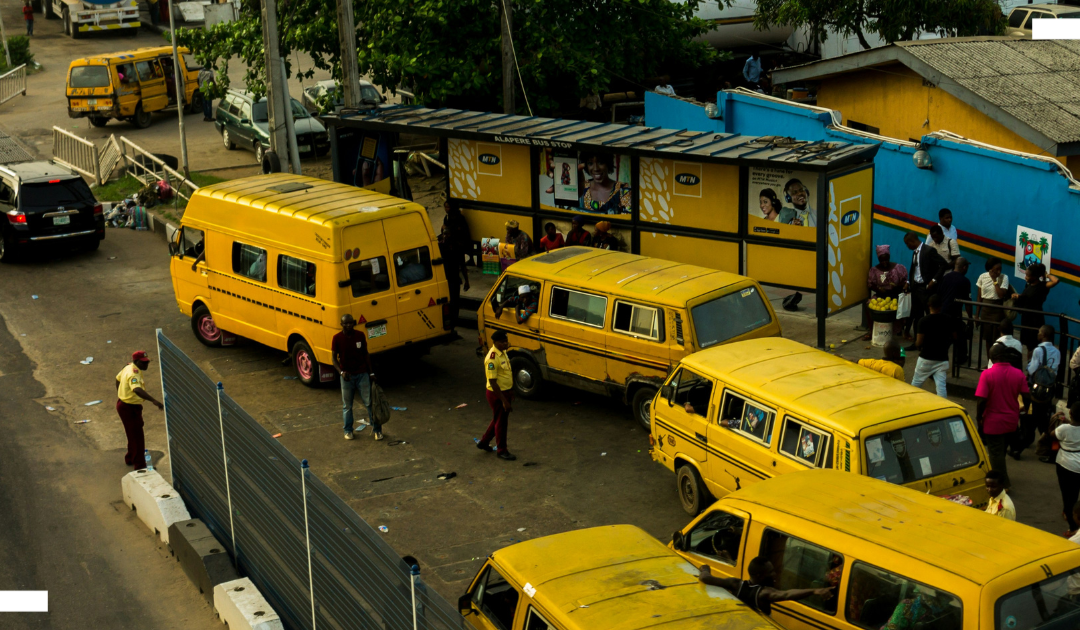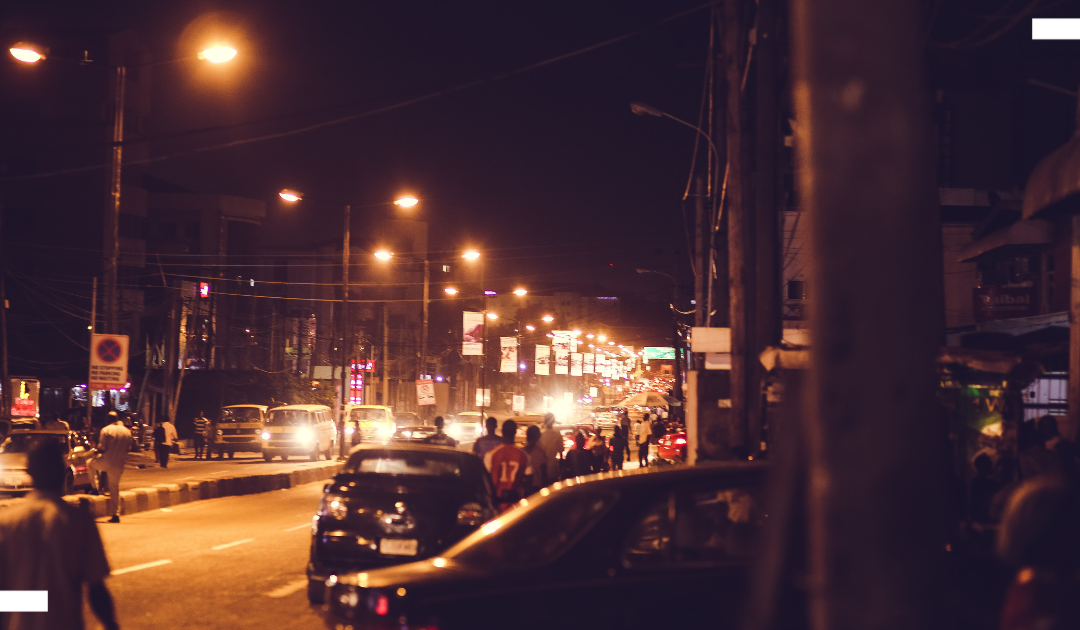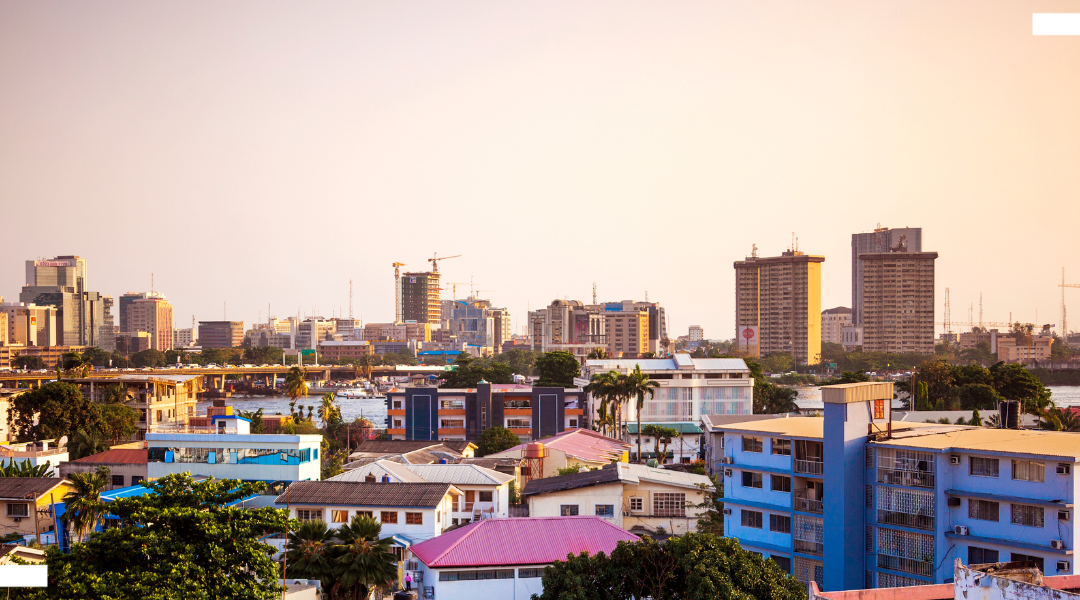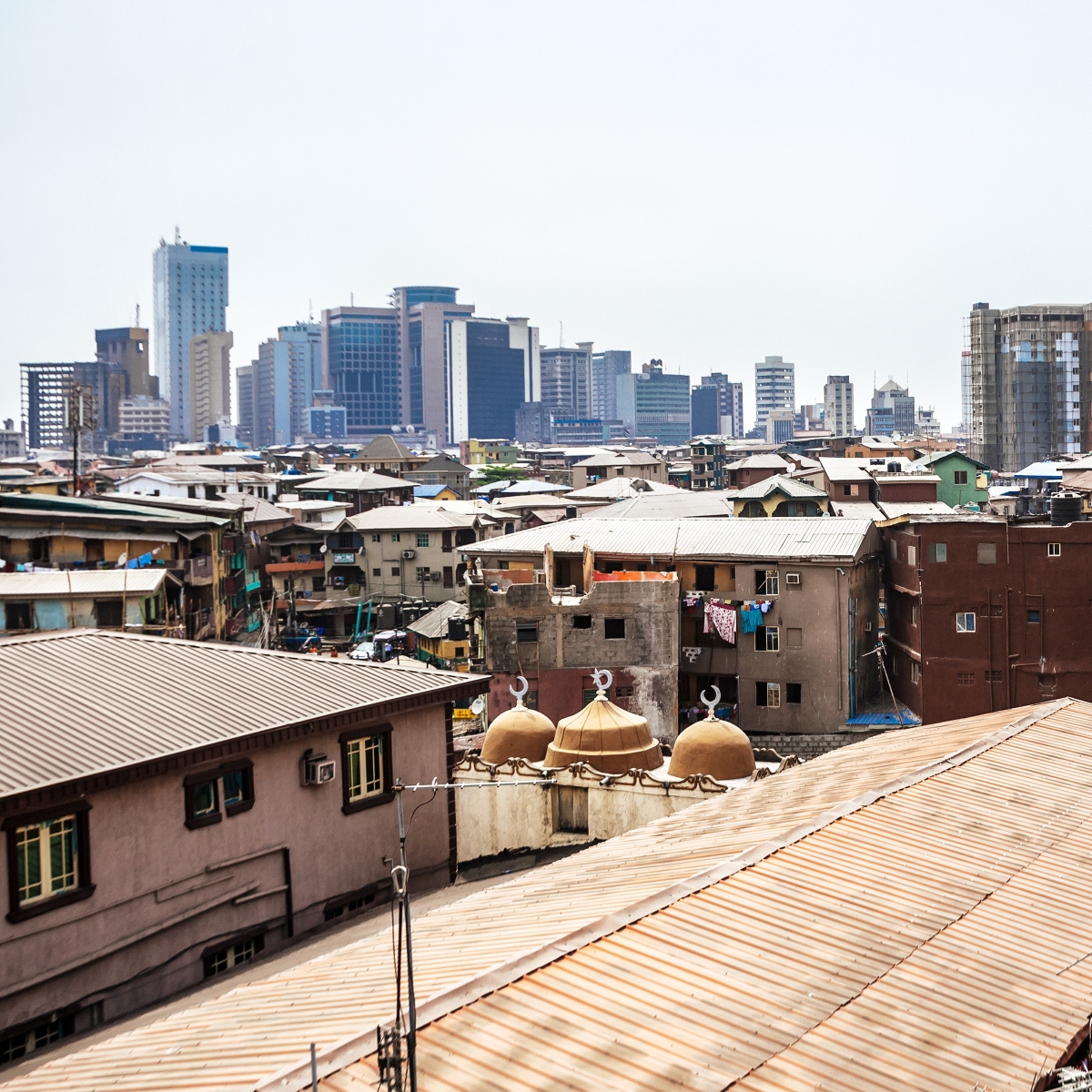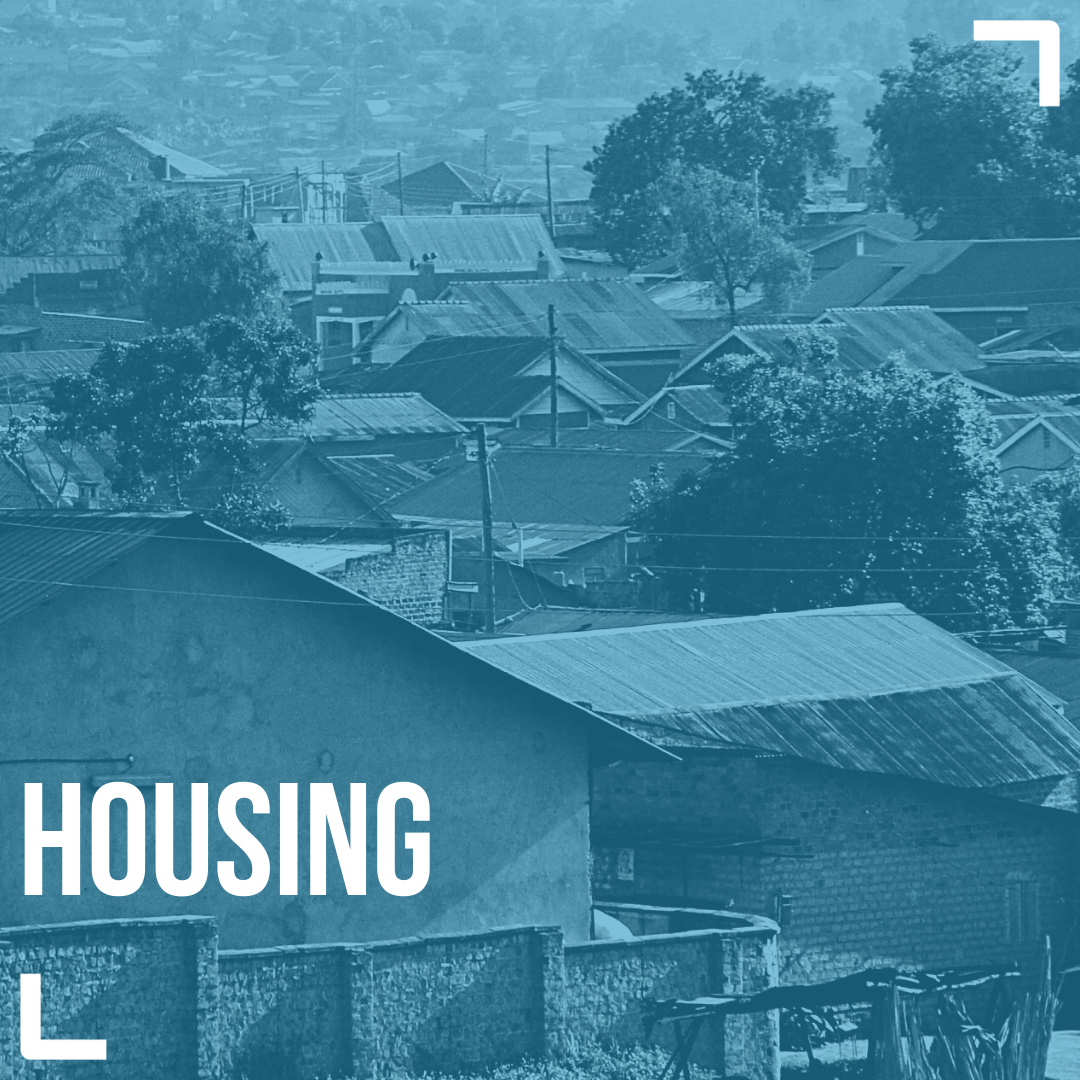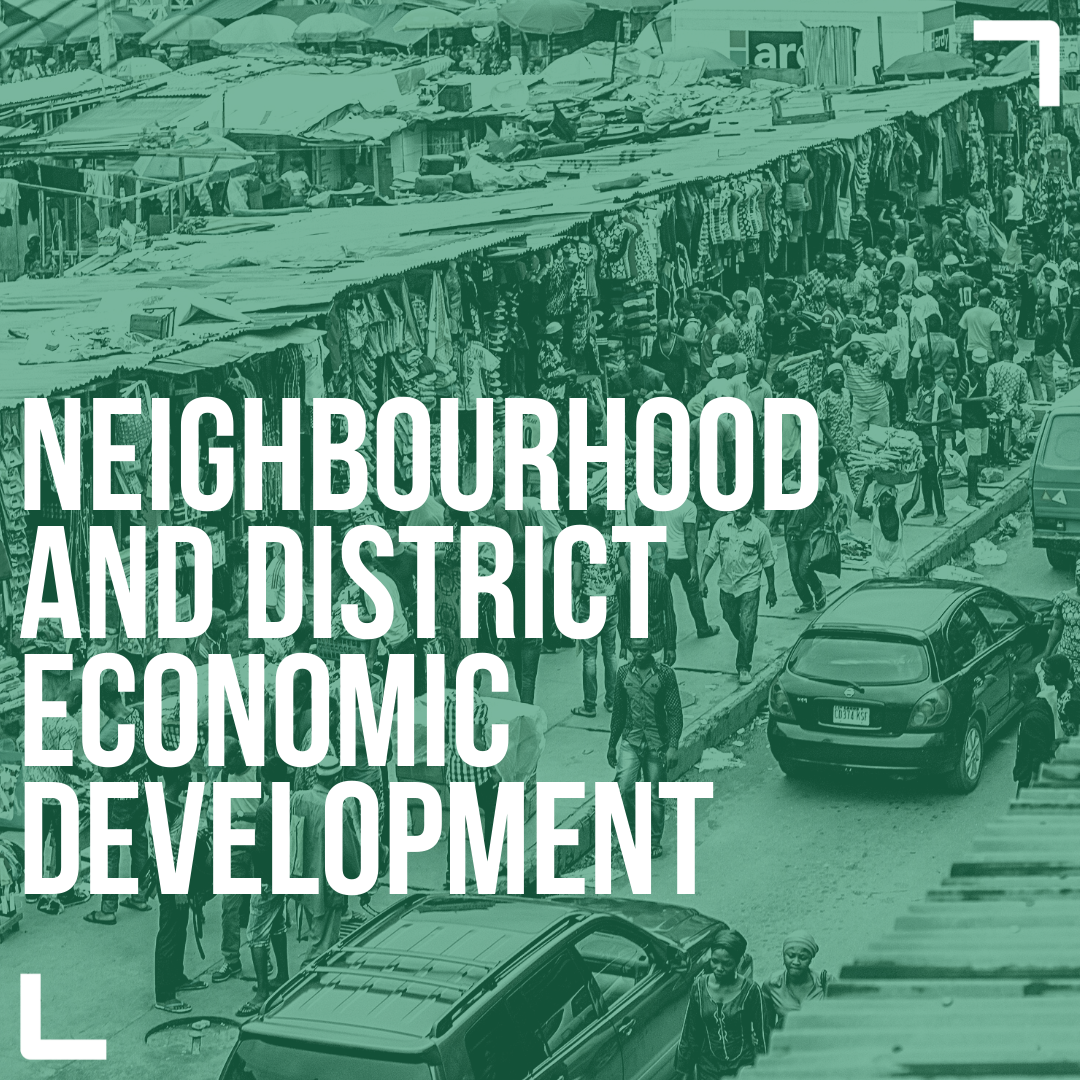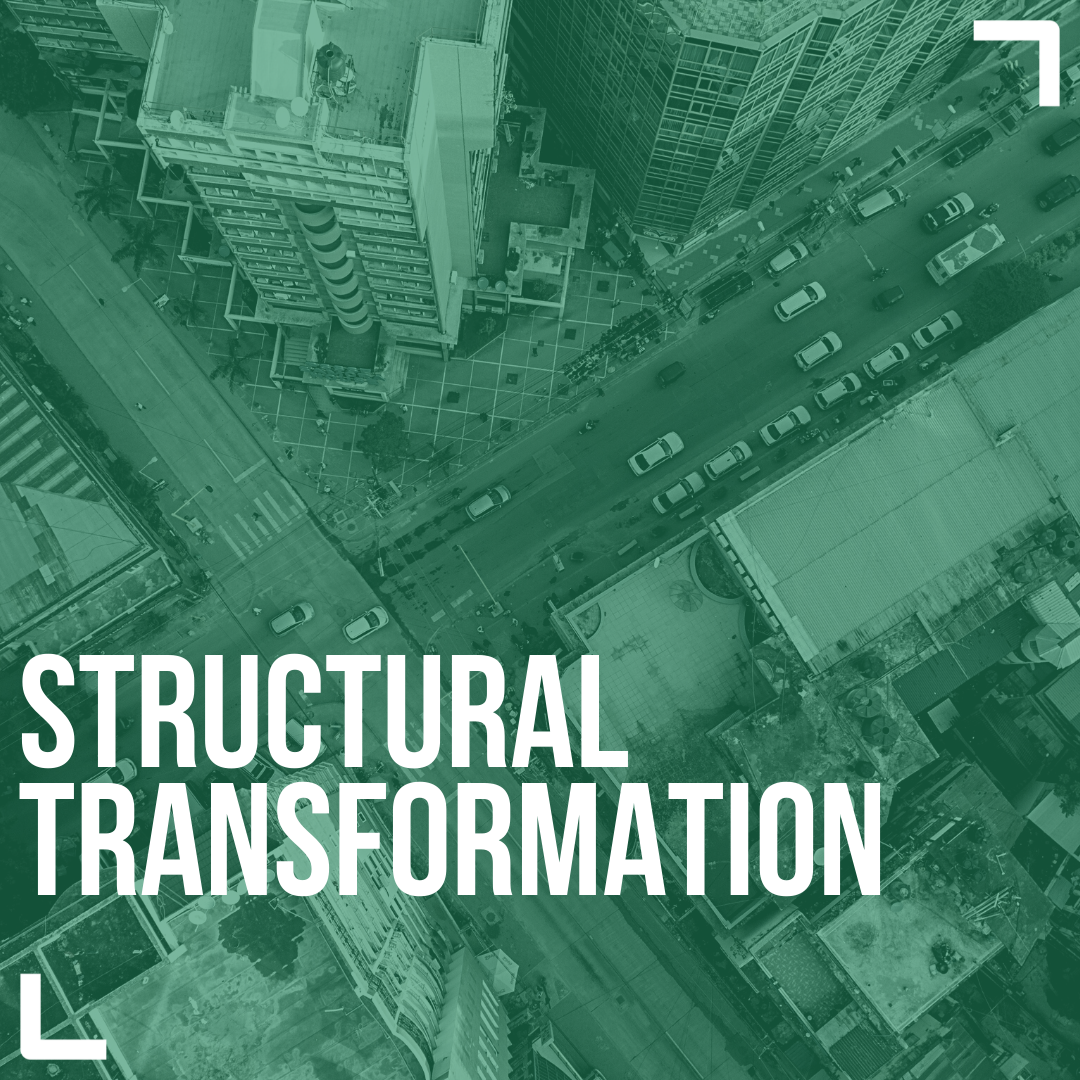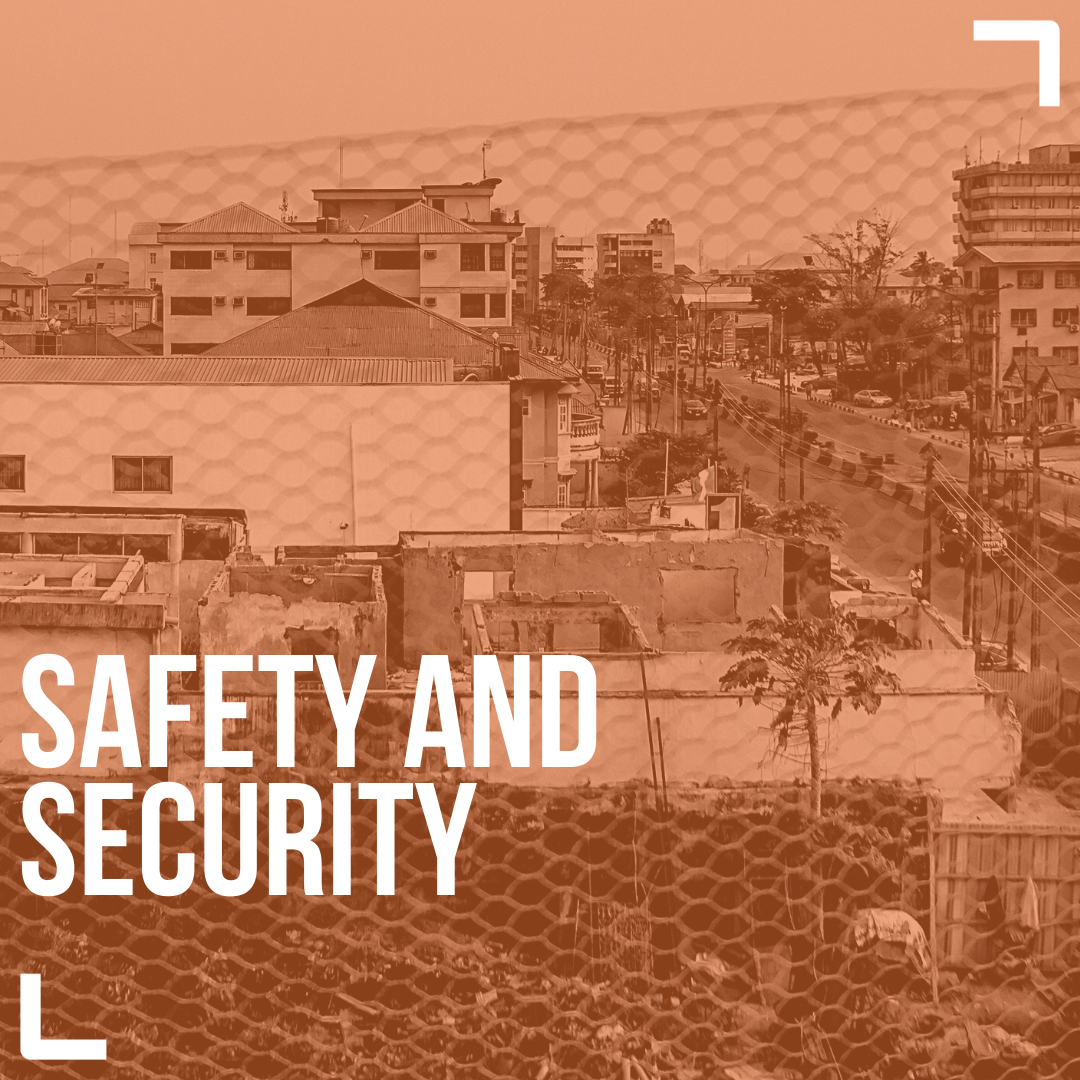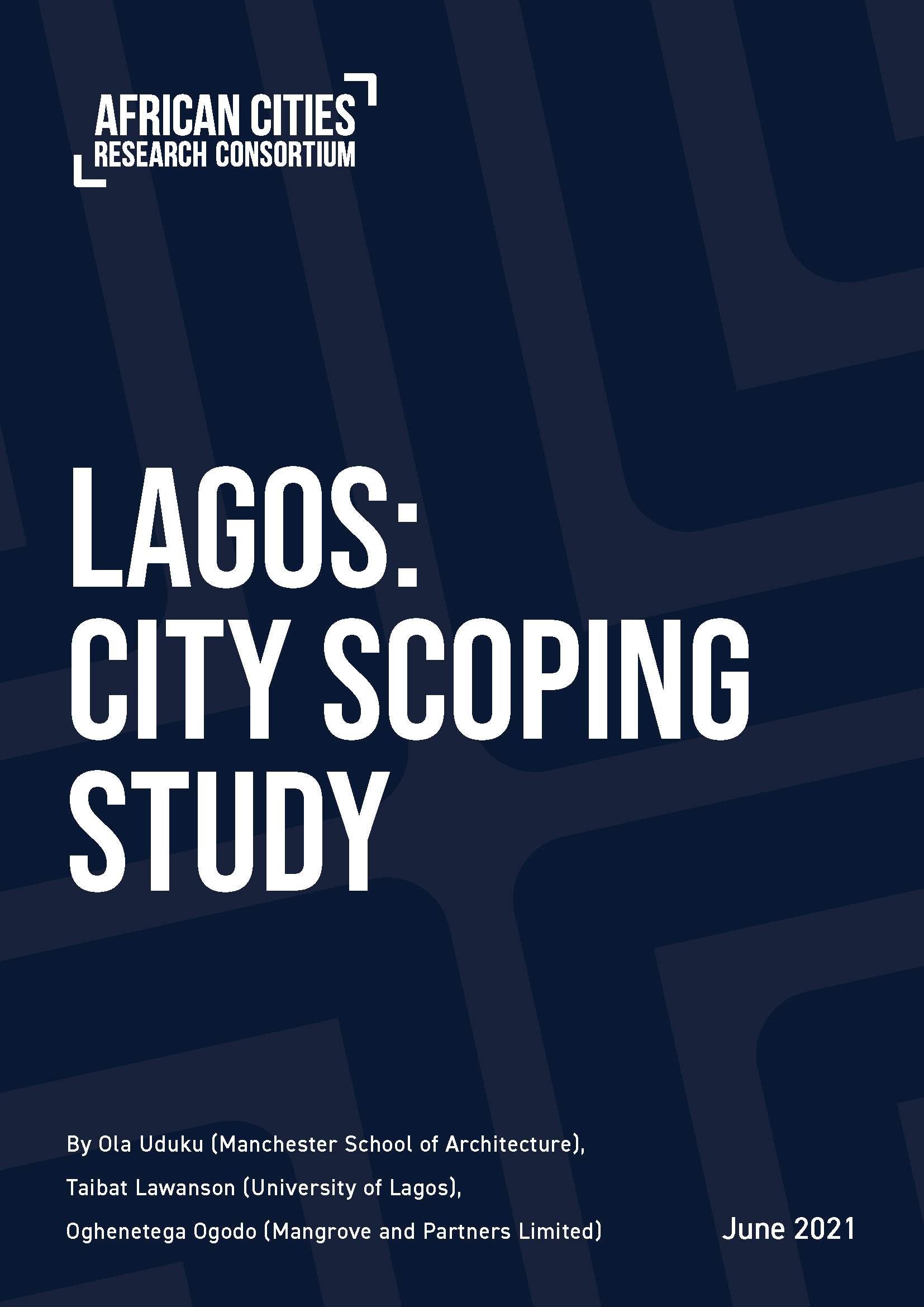African Cities Research Consortium
Lagos: City Scoping Study
By Ola Uduku (Manchester School of Architecture), Taibat Lawanson (University of Lagos), Oghenetega Ogodo (Mangrove and Partners Limited)
Lagos is a coastal city on West Africa’s Atlantic seaboard. It became Nigeria’s first capital city in 1861, and it has grown rapidly since Nigerian independence in 1960, when its estimated population was 763,000.[1] At the height of Nigeria’s oil boom in the 1980s, its population reached 2.7 million,[2] and it has remained Nigeria’s foremost city, economically and socio-politically.
The Nigerian federal government moved its capital to Abuja in 1991[3] and many people hoped this would alleviate pressure on Lagos and its aging infrastructure. However, due to an economic downturn beginning in the 1980s, Lagos witnessed significant migration from those in rural areas in search of employment. In recent years, economic migrants have been joined by those escaping conflicts in northern areas and elsewhere in Nigeria and the West African sub-region. Most migrants to Lagos are poor and have been absorbed into the city’s informal settlements. Now at roughly 12 million, Lagos’ population is significantly higher than Nigeria’s other major cities[4] and more than 40% of its population (circa. 6 million) is under the age of 25.[5]
Geography and natural features
Lagos extends on a west–east axis; to the west towards the border with Benin and to smaller riverine towns to the east. It is low-lying and subject to flooding and coastal erosion. Major infrastructural schemes in the 1950s, 1970s and, most recently, in the 2010s, have involved the creation of flood barriers, coastline management and land reclamation. The high-profile urban development scheme, Eko Atlantic, has involved further land reclamation from the Atlantic Ocean.
Lagos State is the smallest state in Nigeria, with a land mass of 3,345 km2. With a population density of 4,713 km2, rising to 12,000 in some low-income areas, Lagos also has the densest population conurbation in Nigeria. Its urban area has expanded at an average annual rate of 2.6% since 2000.[6]
Administration
The Lagos conurbation covers multiple administrative areas, including:
- The municipality (Lagos Island): covering the extent of what is present-day Lagos Island. This area served as the headquarters of the Lagos Colony and remains the core of the modern metropolis and its central business district.
- Lagos Metropolis: covering 16 local governments.[7]
- The State (Lagos state): which covers 20 local government areas (the 16 urban local governments mentioned above and four rural local government areas. There are also an additional 37 local council development areas (LCDAs) that were created in 2003 by the Lagos state government, though yet to be constitutionally recognised. The LCDAs are responsible for local taxation, schooling and health.
- Lagos megacity: covering Lagos State and its peri-urban interface, which includes towns and villages in four local government areas.[8]
The overlapping administrative jurisdictions makes the collection of data difficult.
Urban fabric
The nucleus of Lagos is the historic Lagos Island area and its extension to Victoria Island. This forms much of its central business district. The administrative infrastructure for Lagos State is now located in Ikeja on the mainland. There are a number of informal settlements on the outskirts of the historic central business district. Aside from the Lagos and the Ikeja-Alausa administrative area, there are also historic commuter neighbourhoods, including Apapa, ‘FESTAC,’ Satellite Town. More recent residential suburbs exist towards the Ibadan expressway and on the Lekki Peninsula.[9] Over 60% of Lagos residents live in inormal settlements scattered around the city, most notably in Makoko, with an estimated 300,000 inhabitants.[10]
The city has eight tertiary institutions and is well served by state primary and secondary schools, and also Nigeria’s oldest private and missionary educational institutions.[11] While private hospitals provide at least 70% of the healthcare in the country, there are also federal, state, local government and community-funded health institutions.[12] Most residents, especially those living in informal communities, rely on patent medicine vendors and traditional medicine. There are approximately 1,200 primary-age children for every available public primary school, and roughly 60% of school age children attend private schools. Only 11% of the 724 private schools are officially registered.[13]
Estimates of transport demand in metropolitan Lagos in 1990 ranged from 7 million to 10 million passenger trips daily, of which over 95% were undertaken by road, primarily by private cars, buses and taxis, and commercial motorcycles. Of these, between 80% – 85% were made by public transport.[14] Lagos has one of the most extensive road networks in the West Africa sub-region, complemented by suburban train and ferry services. The Lagos Metropolitan Area Transport Authority has proposed an urban rail network comprising seven lines, two of which are currently under construction. One line will run in the middle of the Lagos-Badagry expressway, which is currently being redeveloped as a ten-lane coastal motorway between Lagos and neighbouring West African states.[15]
Economy
The formal economy of Lagos depends mainly on the financial sector, with manufacturing, higher education and more recently ‘fintech’ and internet-related industries also contributing to the mix.[16] Metropolitan Lagos accounts for over 53% of manufacturing employment in Nigeria, and constitutes 7% of manufacturing’s share to national GDP. The formal sector had an output of $136bn in 2017, while an estimated 5.5 million people, or 65% of Lagos’ working population, work in the informal sector.[17] Meanwhile, around 25% of residents in informal settlements are unemployed, and recent research shows that in some informal settlements the lowest-income residents were surviving on less than N5000 (approximately £9.50) per month.[18]
Table 1: Trading and informal sector income contributions
| Year |
Street trading contribution to aggregate family income (%) |
Informal sector share of the total industrial sector income (%) |
| 2009 |
48.1 |
53.2 |
| 2010 |
47.8 |
54.1 |
| 2011 |
49.0 |
55.3 |
| 2012 |
50.2 |
56.7 |
| 2013 |
51.3 |
58.6 |
| 2014 |
52.5 |
57.9 |
| 2015 |
52.7 |
57.5 |
Source: Otekhile and Oluwatoyin (2017).
Political context
Local elections were held in 2018. Ministerial oversight for local governments is by the Lagos State Ministry of Local Government and Community Affairs. The commissioner is responsible for the administration of the state-level acts governing local governments, while elected councillors and the chairmen of local governments can be suspended by the state governor or state assemblies. For the most part, the Lagos State government controls all finance and disburses funds to cover the running costs of each local government body.
The executive branch is one of the three co-equal arms of the state government concerned with policymaking and implementation, as well as the day-to-day administration of the state. The governor heads the Lagos State Executive arm of government and state commissioners are appointed to oversee 28 ministries and parastatals. The vision of the state is to “make Lagos Africa’s Model Mega City and Global Economic and Financial Hub”, while the policy thrust is “Poverty Eradication and Sustainable Economic Growth through Infrastructure Renewal and Development”. The current government aspires to a “greater Lagos”, by prioritising an agenda known as THEMES, prioritising traffic management and transportation, health and environment, education and technology, making Lagos a 21st century economy, entertainment and tourism and security and governance.
Urban challenges
Despite the administrative capital of Nigeria being moved to Abuja in 1991, Lagos remains the centre of gravity for Nigeria’s economy and society. It faces a host of social and economic challenges, such as uncoordinated urban expansion, inadequate housing, a chaotic transportation system, and inefficient waste management. This is due to the lack of availability, distribution and accessibility of infrastructure. The fundamental challenge is how best to develop appropriate institutional, legal and technical processes through which to integrate land administration and topographic mapping innovations that can map out successful development processes and create policies that foster growth.[19]
Housing: Redevelopment challenges: contested visions, displacement, evictions
The proliferation of informal settlements is one of the most enduring spatial manifestations of poverty and urbanisation in Lagos.[20] Lagos has expanded from its original lagoon setting to encompass a vast expanse of mostly low‐rise developments, including as many as 200 different ‘slums’.[21] Access to adequate and affordable housing remains a pressing and key challenge in Lagos, which typifies urban dysfunction as manifested in overcrowding and inadequate housing.[22] The majority of the available housing stock is in poor condition and the supply is grossly insufficient to meet the needs of the ever-increasing population. The city has an estimated 5 million out of Nigeria’s estimated 18 million housing deficits.[23]
Transportation
State-level plans to improve transport and energy infrastructure, which are critical to the state’s manufacturing capacity, are hampered by the national control of highways and the national grid. The current state governor had hoped to guarantee 24-hour power supply to Lagos by 2025, prior to Covid-19. This objective is now unlikely to be met. Most transportation infrastructure, including ports, roads and airports, are federally controlled and dependent on federal government funding for development, repair and expansion.
Migration and displacement
Internal and international migration is a national issue, with direct effects on Lagos. The metropolis remains a major destination for economic migrants from within and outside Nigeria. The growing tensions in northern Nigeria has also led to an influx of political refugees and displaced persons.
Political factors shaping how urban challenges are addressed
National political context
Only a few of the political parties in Nigeria can boast of having national coverage or ideological convictions. These features arise from what has been described as the “caucus or elitist nature of political parties in Nigeria, conflicts, divisions, splitting and decamping”.[24] This is related to the belief that only the educated minority in each ethnic group are the people who are qualified by natural right to lead their fellow nationals into higher political development.[25] This has translated into a weak base of support for political parties amongst ordinary citizens, and the lower-level political structures are largely based on cronyism.[26]
Nigeria is governed by the ruling All Progressives Congress under the rule of President Muhammadu Buhari and Vice President Yemi Osinbajo. President Muhammadu Buhari came to power in 2015 and is currently serving his second term. The president has led an anti-corruption agenda focused on income-generating enterprises, the armed forces, government institutions, political office holders, civil servants, private contractors, legal practitioners and individuals.[27]
In recent times, there has been growing citizen discontent with the party’s/president’s governance style, and no resulting improvement in quality of life. The #EndSARS movement against police brutality spread to many Nigerian cities and resulted in the killing of unarmed youth in Lagos, Benin and Osogbo, among others.
Political context: National
There has been a long-standing political rivalry between Lagos and the federal government, as Lagos has often been ruled by the opposition political party. Lagos has effectively been the seat of two major rival political parties.
Lagos has been the seat of the colonial and federal government (1914-1991), which was dominated by a coalition of eastern and northern political parties during different civilian and military regimes. Yet the dominant party in the western region – the Action Group – was regularly in opposition to the federal government during the late colonial period and the First Republic (1954-66). During the Second Republic, the new political party, the Unity Party of Nigeria (1979-83) was in opposition, and the Alliance for Democracy during the Fourth Republic (1999-2007). The Alliance for Democracy became an offshoot of the Action Group and the Unity Party of Nigeria. Since 2007, the party has frequently changed names, from Alliance for Democracy to Action Congress and later to Action Congress of Nigeria. The Alliance for Democracy was the result of splits among political elites, first in the People’s Democratic Party and later in the All Peoples’ Party, which serves as one of the main political parties to date. These parties have coalesced into the All-Progressives Congress, which wields power at the state and federal level in Nigeria today.
Tension between the federal government and Lagos state government entered a new dimension in 2003, when monthly allocations due to Lagos State were withheld by the federal government for a period of about 23 months. The protracted rivalry resulted in the reluctance of the national government to make long-term commitments to Lagos.[28] This impacted negatively on urban development, infrastructure provision and service delivery in Lagos State. This rivalry is at the core of the widespread challenges faced in the management and provision of infrastructure and urban services in Lagos .[29]
Despite the political party being aligned at the state and federal level in this dispensation, some tensions still exist. Lagos was granted a special status, due to its population, infrastructure challenges, and the location of extensive federal government property – many of which have been abandoned. The current political alignment has resulted in continuous negotiations, accommodation and/or compromise as the national government is mindful that the country is depending on Lagos State to generate the majority of non-oil revenue. More recently, the state has also been able to produce oil revenue from the Dangote refinery and the discovery of oil deposits in Epe.
Political context: Local
Public revenue in Lagos is derived primarily through local taxation. Tax is collected at local level, which can be deducted via the ‘pay as you earn’ system for formal workers. But in the informal sector, tax collection is via a predetermined annual flat rate and failure to pay can lead, for example, to eviction from market stalls. There is also limited transparency or scrutiny as to how taxes are collected and used. Thus, local taxes are collected under state-led joint ventures, for which partnership ‘development’ outcomes are not guaranteed.
Organised groups, such as unions, NGOs, local landowners or local community leaders, can have a positive impact, influencing communities to participate in local elections and through involvement in health campaigns. They can also instigate non-engagement in these processes. In informal settlements, “area boys” and other groupings of otherwise disenfranchised youths have also been disrupters to local authorities. Religious groups and their leaders are also powerful actors, as their organisations often provide a parallel and frequently more successful social safety net for their followers. Consequently, the political and other choices they make can have a direct influence on their followers. The increasing closure of civic spaces nationally has resulted in the transition to online media for civil society actors and activists agitating for better living conditions.
Issues of sustainability are both local and national. Lagos’ position facing the Atlantic means that global warming and subsequent rising of sea levels has necessitated land reclamation. The creation of new land masses, such as the Eko Atlantic island, has had a direct environmental impact on surrounding communities. Other local issues related to non-sustainable practice include the presence of toxic chemicals, e-waste dump sites in parts of Lagos, as well as inconsistent waste management practices. These are often near to poorer informal settlements.
Finally, there has been no clear local (or national) policy to develop sustainable energy sources, such as solar-photovoltaic production, to provide off-grid solutions to local power supply problems for public infrastructure such as schools and health facilities. Past governors in the state have courted with these technologies, but changes in leadership meant that proposals were not taken forward.
#EndSARS
In the early 1990s, incidents of armed robbery, kidnappings and killings were rampant in cities like Lagos. This led to the formation of the unit called Special Anti-Robbery Squad (SARS) in 1992 by the superintendent of police, Simeon Danladi Midenda. SARS was given a mandate to operate independently and surreptitiously to ambush robbers.[30] Under the rule of General Sani Abacha, a pattern soon emerged of SARS extorting civilians or detaining and torturing them into giving confessions. Even after Abacha’s death in 1998, the unit continued to increase its use of aggression and violence. Perpetrators of cybercrime became a target for the SARS unit in the 2000s. This agenda was extended to every individual fitting the description of persons holding expensive gadgets – especially young men.[31] Cases continued to rise and the lack of commitment from the government did not afford citizens any avenue to seek justice. The government announced that SARS would be demobilised in 2014, 2015 and 2017 but this did not arise.
This bureaucratic system, lack of transparency and gaps between the government and its citizens, highlighted the need to focus on the security forces; the personnel in charge, as well as reducing corruption within the ranks of the police force.
The pandemic was a tipping point for youth, as the social and political climate became more chaotic during the pandemic. Increasing incidence of rape, the absence of palliatives to sustain citizens, and frequent cases of police brutality, set the stage for the #EndSARS protest in October 2020, resulting in the Lekki massacre killing at least 12 protesters. [32]
The four-year political cycle of power influences key political players, from the governor to local government councillors, to focus on short-term goals. Business development goals tend to be prioritised over those longer-term plans in pursuit of social equity and improvement of livelihoods for poor and marginalised groups. There is limited scope to hold elected politicians accountable, since their political power may extend for only one more four-year period at the most.
African Cities Research Consortium: Potential added value
Lagos is one of the fastest growing metropolitan areas in Africa, but it has also evidenced popular civic engagement during the #EndSARS protests. ACRC research will highlight areas and issues which have not been addressed in past studies by focusing on the city’s socio-economic growth and development, and its current political settlement. It also provides the opportunity to understand the power structures that inform critical players and actors whose precise role is often difficult to determine. Its results will help reveal the ways and means by which excluded groups might be better able to have access to contested resources.
References
Abdul-Hamid, H., Baum, D., Lusk-Stover, O. and Wesley, H. (2015). The Role of the Private Sector in Lagos, Nigeria. World Bank Group Systems Approach for Better Education Results (SABER), Engaging the Private Sector. Washington, DC: World Bank.
Abubakar, R., Lawanson, T. and Usman, A. (2020). “Urban planning practices in Lagos”. In D. Rukuma (ed.), The Routledge Handbook of Planning Megacities in the Global South. London and New York: Routledge, pp. 377-391.
Adedipe, B. (2004). “The impact of oil on Nigeria’s economic policy formulation”. Presentation at the Nigerian Economic Summit Group meeting, “Nigeria: Maximizing Pro-poor Growth: Regenerating the Socio-economic Database”, 16 June, London.
Adejumo, S. (2007). Political Parties in West Africa: The Challenge of Democratization in Fragile States. Report prepared for the International Institute for Democracy and Electoral Assistance (International IDEA)/Global Programme on Research and Dialogue with Political Parties.
Adeoye, A. A. (2010). “Lagos State Geoinformation Infrastructure Policy (LAGIS) as a tool for mega city development: Opportunities and challenges”. Paper presented to the XXIV FIG International Congress 2010: Facing the Challenges – Building the Capacity, 11-16 April, Sydney.
Adewumi, I. and Akinyele, C. (2018). “Healthcare delivery system and preventive health: A review of sojourn of Lagos State”. Journal of Research in Humanities and Social Science, 6(9): 46-59.
Adeyemi, K. and Disu, O. (2012). “Floating city solutions for Africa’s vulnerable coastal communities: The case of Makoko”. Perspectives: Political Analysis and Commentary from Africa. What are Sustainable African Cities? 3.12: 18-23. Heinrich Böll Stiftung.
Aliu, L. R., Akoteyon, I. S. and Soladoye, O. (2021). “Living on the margins: Socio-spatial characterization of residential and water deprivations in Lagos informal settlements, Nigeria”. Habitat International, 107(102293).
Bank-Olemoh, O. (2016). Lagos State: Education Partnership Opportunities. Online resource (accessed 18 May 2021).
Bekker, S. and Fouchard, L. (eds.) (2012). Governing Cities in Africa: Politics and Policies. Pretoria: HSRC Press.
Campbell, J. (2019). “Home to over half the population: Nigeria’s cities continue to boom”. Blog, Council on Foreign Relations, 22 August. Available online (accessed 3 February 2021).
Centre for Democracy and Development (2016). The Buharimeter Report: Matching Campaign Promises, Public Expectations and Government Actions in the First Year of President Muhammadu Buhari’s Government. Abuja: Centre for Democracy and Development. Available online (accessed 18 May 2021).
Chow, A. R. (2020). “The Nigerian government has pledged to #EndSARS and reform the police. This isn’t the first time they’ve made that promise”. Time, 28 October. Available online (accessed 18 May 2021).
Cities Alliance (2009). “Challenge of managing a megacity and policy response: The Lagos experience”. Slum Upgrading Up Close: Experiences of Six Cities, pp. 27-32. Available online (accessed 18 May 2021).
De Gramont, D. (2015). Governing Lagos, Unlocking the Politics of Reform. Washington, DC: Carnegie Endowment for Peace.
Dodman, D., Archer, D. and Satterthwaite, D. (2019). “Editorial: Responding to climate change in contexts of urban poverty and informality”. Environment and Urbanization31(1): 3-12.
Egbejule, E. (2020). “Surviving Lagos, Lagos is a country”. The Africa Report, 15 May. Available online (accessed 18 May 2021).
Federal Government of Nigeria (2007). Official Gazette: Legal Notice on Publication of the Details of the Breakdown of the National and State Provisional Totals 2006 Census.
Federal Government of Nigeria. (2006). Report of the Presidential Committee for the Re-development of the Lagos Megacity Region.
Financial Times (2021). “How Lagos loses out in battle for investors”, 1 February.
Financial Times (2020). “Nigeria’s port crisis: The $4000 charge to carry goods across Lagos”, 27 December.
Financial Times (2020). “Africa’s booming tech hub of Lagos braces as pandemic bites”, 2 November.
Gandy, M. (2006). “Planning anti-planning and the infrastructure crisis facing metropolitan Lagos”. Urban Studies 43(2): 371–396.
George, A. (2020). The roots of the #EndSARS protests in Nigeria. Made by History. Washington Post, 25 October.
International Institute for Democracy and Electoral Assistance (2018). Collaboration between Citizen Movements and Political Parties: Political Party Innovation Primer 3. Stockholm: International IDEA.
Lagos Bureau of Statistics (2015). “Demographic Dividend in Lagos State: The opportunity we must not forgo!” Available online (accessed 18 May 2021).
Lawanson, T. (2015). “Potentials of the urban poor in shaping a sustainable Lagos megacity”. In A. Allen, A. Lampis and M. Swilling (eds.), Untamed Urbanisms. London and New York: Routledge, pp. 108-118.
Lawanson, T. and Fadare, S. (2015). “Environment and health disparities in urban communities: Focus on Eti Osa, Nigeria”. City, Culture and Society 6(1): 43-52.
Lawanson, T. and Agunbiade, M. (2018). “Land governance and megacity projects in Lagos, Nigeria: the case of Lekki Free Trade Zone”. Area Development and Policy, 3(1): 114-131.
Lawanson, T., Foley, L., Assah, F., Mogo, E., Mapa-Tassou, C., Ogunro, T., Onifade, V and Oni, T. (2020). “The urban environment and leisure physical activity during the COVID-19 pandemic: A view from Lagos”. Cities and Health Special Issue: COVID-19.
Lawanson, T. and Udoma-Ejorh, O. (2020). “How smart is Smart City Lagos?” In K. Willis= and A. Aurigi (eds.), The Routledge Companion to Smart Cities. London: Routledge, Chapter 10.
Malumfashi, S. (2020). “Nigeria’s SARS: A brief history of the Special Anti-Robbery Squad. How a police unit established to combat armed robbery became synonymous with unlawful killings, torture and extortion”. Aljazeera, 22 October. Available online (accessed 18 May 2021).
Morakinyo, K. O., Ogunrayewa, M. O., Koleosho, B. O., Adenubi and Olufunmilola, O. (2012). “Urban slums as spatial manifestations of urbanization in Sub-Saharan Africa, A case study of Ajegunle Slum Settlement, Lagos, Nigeria”. Developing Country Studies 2(11): 1–10.
Nigerian National Assembly (2006). Administrative Levels – Lagos State.
Olarinmoye, O. O. (2008). “Godfathers, political parties and electoral corruption in Nigeria”. African Journal of Political Science and International Relations V, 2(4): 66-73.
Olowu, D. (1990). The Nigerian Conception of Local Development. Ibaden: Nigeria Institute of Social and Economic Research. Federal Ministry of Health.
Onifade,V., Lawanson, T. and Yoade, A. (2018). “Sustainable housing satisfaction determinants in Metropolitan Lagos”. Journal of Sustainable Development in Africa, 20 (2): 1-15.
Onwuanyi, N. (2019). “The unplanned journey that led Lagos to becoming an overwhelmed megacity”. QuartzAfrica, 5 October. Available online (accessed 18 May 2021).
Opeifa, K. (2012). “How do we harness electricity to transform social infrastructure?” Presentation to 7th Lagos Economic Summit on Powering the Lagos Economic Real Opportunities, Endless Opportunities.
Oshodi, L. (2010). “Housing, population and development in Lagos, Nigeria”. International Development and Urban Governance.
Oyalowo, B., Nubi, T. and Lawanson, T. (2018). “Housing affordability, government intervention and housing informality: An African dilemma?” Journal of African Real Estate Research 3(2): 1-24. University of Cape Town.
Pilling, D. (2018). “Nigerian economy: Why Lagos works”. Financial Times, 25 March.
Rufín, C., De Miranda, M. and Moskowicz, M. (2020). “International experiences of criminal violence and delivery of urban basic services: The case of electricity”. Environment and Urbanization 32(2): 599-614.
Salau, T. (2015). “Public transportation in metropolitan Lagos, Nigeria: Analysis of public transport users’ socioeconomic characteristics”. Urban, Planning and Transport Research 3(1): 132-139.
Soyinka, O., Siu, K., Lawanson, T. and Adeniji, O. (2017). “Assessing smart infrastructure for sustainable urban development in the Lagos metropolis”. Journal of Urban Management 5(2): 52-64.
The Conversation (2020). “Lagos’ size and slums will make stopping the spread of COVID-19 a tough task”, 1 April. Available online (accessed 18 May 2021).
The Economist (2016). “Electricity in Nigeria: Powerless”. 5 March.
The Task Force (2018). The Next Generation Report. An Agenda for Nigeria. Collecting the Dividend. Available online (accessed 18 May 2021).
UN Habitat (2008). The State of African Cities 2008: A Framework for Addressing Urban Challenges in Africa. Nairobi: United Nations Human Settlements Programme. Available online (accessed 18 May 2021).
Wang, J. and Maduako, I. N. (2018). “Spatio-temporal urban growth dynamics of Lagos Metropolitan Region of Nigeria based on Hybrid methods for LULC modeling and prediction”. European Journal of Remote Sensing 51(1): 251-265.
Wapwera, S. (2015). “The Evolution of Abuja as a ‘Smart City’ a prognosis”. Journal of Nigerian Institute of Town Planners, 23.
World Bank (2005). “Lagos strategy for economic development and poverty reduction: preliminary findings from four firm level surveys”. Washington, DC: World Bank
World Bank (2005). “Project appraisal document on a proposed credit in the amount of SDR 13.8 million (US$200.00 million equivalent) to the Federal Republic of Nigeria for the Lagos Metropolitan Development and Governance Project (June 2006)”. Available online (accessed 18 May 2021).
[1] Campbell (2019).
[2] Adedipe (2004).
[3] Wapwera (2015).
[4] Source: Afripolis.
[5] The Task Force (2018). See also Nigeria Statistical Bulletin (2017).
[6] http://atlasofurbanexpansion.org/cities/view/Lagos
[7] World Bank (2005); Federal Government of Nigeria (2007); Nigerian National Assembly (2007).
[8] Federal Government of Nigeria (2006).
[9] Lagos Bureau of Statistics (2015).
[10] The Conversation (2020).
[11] Bank-Olemoh, (2016).
[12] Adewumi and Akinyele (2018).
[13] Abdul-Hamid et al. (2015).
[14] Opeifa (2012).
[15] Salau. (2015).
[16] Unfortunately, we have been unable to extract disaggregated data on Lagos and so we have only been able to provide the data extracted from different sources above.
[17] Financial Times (2021).
[18] Aliu, Akoteyon and Soladoye (2021).
[19] Adeoye (2010).
[20] Morakinyoet al. (2012).
[21] Gandy (2006).
[22] De Gramont (2015).
[23] Oshodi. (2010).
[24] Adejumo (2007).
[25] Olarinmoye (2008).
[26] International Institute for Democracy and Electoral Assistance (2018).
[27] Centre for Democracy and Development (2016).
[28] Olowu (1990).
[29] Bekker and Fouchard (2012).
[30] Chow (2020).
[31] Malumfashi (2020).
[32] George (2020).
